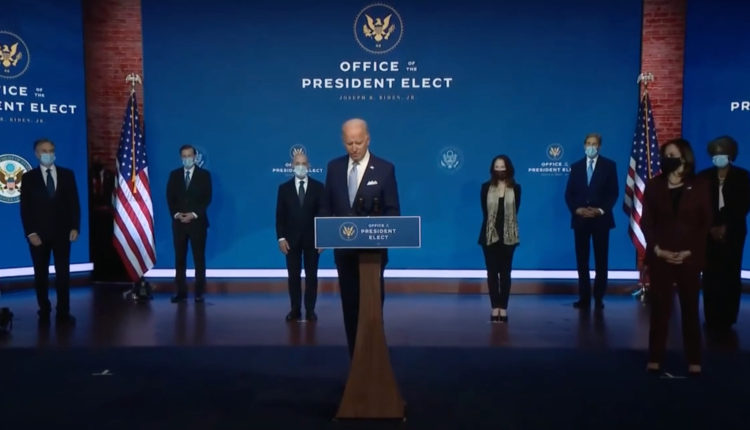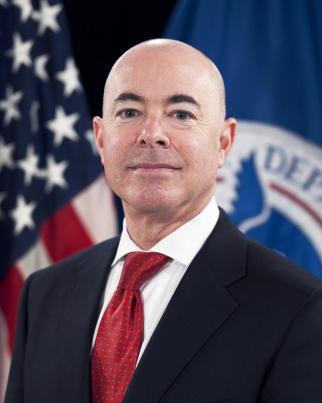
Biden unveils part of foreign and national security team
After almost four years of the Trump administration’s foreign and national security policies, the “America First” concept must be totally overhauled by the new Biden administration. According to the Democratic Party platform, as a result of the Trump vision, the influence and international reputation of the United States has taken a huge hit, the country is less secure, the economy is more fragile, and its democratic values are in danger.
The Democratic Party establishment has emphasized that it is essential to renew American leadership on the world stage. During the presidential campaign Biden’s foreign policy and security advisers have identified the negative impacts of the Trump administration’s projection internationally. Here’s what stand out: severe damage to relations with its allies and partners around the globe; deterioration of the transatlantic alliance; ignorance of international institutions and treaties; limitations in the capacity to face transnational threats; distancing on human rights issues; and strengthening U.S. adversaries, mainly China and Russia.
Dealing with the challenges facing the Biden administration at the international level, a recent article in The New Yorker outlined the “pillars” on which U.S. foreign policy should be based starting January 20, 2021. According to this perspective, they should focus on: rebuilding the transatlantic alliance considered a “powerful tool” of global reach; immediately repairing relations with NATO; renewing the commitment to international institutions by rejoining the climate change agreement, the WHO, extending the START treaty with Russia and resuming the negotiations of the nuclear agreement with Iran; as well as prioritizing human rights and getting tougher with undemocratic regimes.
These pillars are already expressed as initiatives to be implemented in the main policy document released by the Biden-Harris team. Titled “The Biden Administration. Political priorities and agenda starting on Day One,” constitutes a guide that identifies the decisions that the new Biden administration would make immediately in matters of domestic and foreign policy. This report also adds the following: “Strengthen ties with other democratic nations to contain China and Russia,” which shows the priority that the geopolitical dispute between the great powers will face.
The above corresponds to intentions, desires and a vision that must be implemented by the new administration. In the process of specifying these lines of action, there are two fundamental elements to take into account: the characteristics of the current and prospective international environment, as well as the composition of Biden’s foreign policy and national security team that will be responsible for directing this effort.
Firstly, an article published in Politico highlighted three fundamental ideas: the world that Biden will have to deal with is very different from that of his days as a senator and vice president to one of a time of pandemic; the concept that the priority is to return the U.S. to the “head of the table” at the international level must take into account that this “table” has been profoundly modified, and the strengthening of China and Russia has configured a more competitive global environment where levels of conflict have increased.
Although these are challenges that the United States must face in order to be able to fulfill its international priorities, the main obstacles are internal and have a strong impact on its foreign policy. The most visible manifestations are: the health crisis, the economic problems, the deep social and political polarization that, in practical terms, as an investigation published in The Atlantic says, “has turned the United States into two countries.” The latter was clearly reflected in the election results with the nearly 80 million voting for Biden and more than 70 million who supported Trump.
Regarding the foreign policy and national security team, part of its members were officially announced this past Tuesday. Those nominated for Secretaries of State and Homeland Security, ambassador to the UN and director of National Intelligence, will need to undergo the confirmation process in the Senate. Nominations for National Security Advisor and the Special Envoy for Climate do not require Senate approval.
To fill the post of Secretary of State, Antony Blinken, who has worked with President-elect Biden for more than 20 years and was his senior adviser on the Senate Foreign Relations Committee, was chosen. He is considered a person very close to the president-elect. Blinken is Jewish, 58 years old, and a graduate of Harvard University and Columbia Law School. Between 2015 and 2017, he served as Undersecretary of State and dealt with the fight against the Islamic State, the strategy towards Asia, the global refugee crisis, the policy towards Syria, and the Ukraine conflict.
According to Politico, Blinken can be classified as pro-European and multilateralist. His strong ties to Europe stem from the fact that he spent part of his younger years in Paris. Based on his political profile, it is foreseeable that he will be personally involved in the rebuilding of the deteriorated transatlantic links and in the return of the United States to international institutions and treaties. Interventionist positions are also attributed to him in the case of Syria, and he has declared that “force can be a necessary complement for effective diplomacy.” For this reason, some media classify him as a “pragmatic centrist.”
Named national security adviser was Jake Sullivan, a 43-year-old graduate of Yale Law School, who served as a national security adviser to then-Vice President Biden. He will be the second youngest person to hold this role after McGeorge Bundy who was 41 during the Kennedy Administration.
Sullivan played a leading role in the secret nuclear agreement negotiations with Iran, and in the talks that culminated in the cease-fire in Gaza in 2012. Given his experience, he will probably have direct participation in issues related to the Iranian nuclear program and in processes that require highly complex political negotiations associated with international security issues.
Named Ambassador to the UN was Linda Thomas-Greenfield, a foreign service veteran with 35 years of experience. Between 2013 and 2017 she held the post of Assistant Secretary of State for African affairs. She has also served diplomatic roles in Liberia, Switzerland, Pakistan, Kenya, Gambia, Nigeria and Jamaica. Her profile and the fact that she’s African-American can contribute to projecting an image of US multilateral diplomacy that is more inclusive and tempered by the need for the new government to regain influence in the mechanisms of the United Nations.
Nominated for Director of National Intelligence is 51-year-old Avril Haines, who served as deputy director of the CIA during the Obama Administration. She is the first woman to be appointed to this position. Between 2015 and 2017, she held the position of Deputy National Security Advisor. Haines worked for Biden from 2007 to 2008 when he was the chairman of the Senate Foreign Relations Committee.
During Obama’s first term, she was an advisor on the National Security Council and focused on the legal aspects of counterterrorism operations. She is a graduate of Georgetown University. She will be responsible for coordinating the preparation of the daily report that the president receives on the main issues with an impact on national security.

Proposed for Secretary of Homeland Security is Alejandro Mayorkas, a Cuban-American. He was born in Havana in 1959, and emigrated with his family to the United States when he was one. He is Jewish and graduated from the University of California at Berkeley. He has been an assistant prosecutor in California specializing in white collar crimes.
Between 2009 and 2013, Mayorkas served as the Director of the United States Citizenship and Immigration Services. Beginning with Obama’s second term, he served as Undersecretary of the Department of Homeland Security. He participated in the negotiation of cybersecurity agreements with foreign counterparts, led the work teams against Ebola and Zika, as well as created the Directorate of National Security and fraud detection to ensure the integrity of the immigration system. He will focus on coordinating the broad immigration reform that the Biden administration proposes. [Mayorkas is considered the architect of the Deferred Action for Childhood Arrivals (DACA) program, which has shielded hundreds of thousands of undocumented immigrants brought to the U.S. as minors from deportation.]
Former Secretary of State John Kerry was appointed to the new post of Climate Czar. He is known the architect of the Paris Agreement and signed it on behalf of the United States. From his responsibility as Secretary, he made issues related to the environment a priority for US diplomacy. Since his departure from the Obama administration, he has been involved in various initiatives that deal with pollution and the environment.
The members of the Biden team show a diversity of gender, racial and generational, which is in correspondence with the President-elect’s intention to seek the greatest possible representation in the key posts of his government. Notably, all held high-profile responsibilities during the Obama Administration, and most have working ties of more than 10 years with the president-elect.
When announcing these appointments, Biden stated: “I need a team that, on the first day, will help me reclaim the U.S.’ seat at the head of the table, unite the world in facing the great challenges ahead, and advance our security, prosperity and values. That is the crucial point of this team.” Beyond the objectives and priorities that the new Biden administration seeks to achieve in terms of foreign policy, the country’s internal situation, and the complexities of an international environment severely impacted by COVID-19, constitute enduring challenges for the intended renewal of American leadership in the world.


